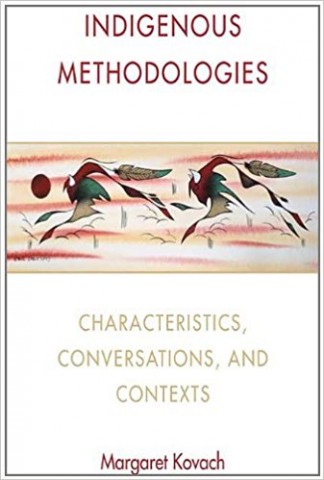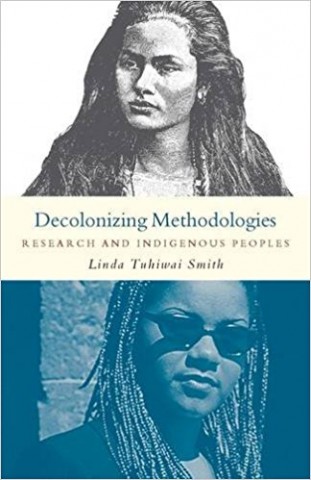A number of past posts presented books on decolonization - Fanon on struggles, Ngugi on language, and Smith on methodologies. How might a grounding in decolonization shape research? Margaret Kovach addresses this question in "Indigenous Methodologies: Characteristics, Conversations, and Contexts" (2009).
In seeking to understand how Indigenous methodologies have been utilized in research, Kovach presents reflections of Indigenous scholars. Their "stories, interwoven with my own reflections, explore how Indigenous researchers have integrated Indigenous cultural knowledges into their research frameworks and the challenges of doing so within academia" (p. 14). Foundational to what makes Indigenous approaches different is a grounding in decolonization: "introducing Indigenous knowledges into any form of academic discourse (research or otherwise) must ethically include the influence of the colonial relationships, thereby introducing a decolonizing perspective into a critical paradigm" (p. 30). This is key because knowledge is "neither acultural nor apolitical" (p. 30).
The author outlines how what constitutes knowledge is a key question, and one that creates challenges in integrating Indigenous methodologies into academia. "Ancient knowledge is still alive in Cree communities. The most sacred form comes through dreams, fasts, sweats, vision quests, and during sacred ceremonies" (p. 66, see also p. 140). But, "Sacred knowledge is not really accepted in Western research, other than in a peripheral, anthropological, exotic kind of way. This can create a difficulty for the Indigenous researcher, for if one chooses to embrace Plains Cree knowledges one must honour all that they are" (p. 67). This includes committing "to its values and demands" (p. 133).
Kovach's books is one step into the direction of broadening what is considered acceptable and accepted within academia. "Creating methodological choice for Indigenous researchers is but one element of decolonizing research, a process that requires depth, breadth, and attention to various aspects of research" (p. 175). "There are also political motivations. Given the assimilative tendency of Western culture, highlighting the tribal-knowledge basis of an Indigenous research framework rather than identifying it as a more generic relational, holistic epistemology, lessens the risk of a qualitative research community assimilating it" (p. 177).
One of the traits Kovach highlights is the relational nature of research and the need for reflexivity. The book does not simply describe these as traits, but exemplifies these traits throughout, as the author explores her own situatedness and journey with Indigenous methodologies. This book is unique - in its style and content - and it is well worth reading.

